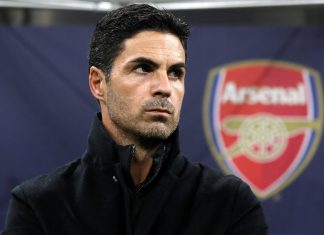It may not have had as many goals as the viewer would have hoped for, and it may have seen a relatively defensive two teams reach the final, but it was a memorable tournament with a number of fascinating stories.
There was Peru’s remarkable transformation from also-ran and bottom of the pile in World Cup qualifying to a third place medal, which they achieved by beating Venezuela, competing in the semi-finals for the first time.
Then there were the remarkable scenes at the quarter final stage, as the four favourites were all knocked out. Most surprisingly of all, hosts Argentina were defeated at home on penalties by 10 man Uruguay, and Brazil missed all of their spot kicks against Paraguay to exit.
Perhaps this should have been expected after Argentina failed to beat Bolivia in the opening game, and then struggled to a 0-0 draw with Colombia. A win against Costa Rica saved their blushes, but only temporarily. Marcelo Bielsa has now resigned following the shock defeat to Uruguay, which came after playing most of the game with a man advantage before Javier Mascherano’s sending off. Argentina paid the price for trying to copy Barcelona in the group stage, and floundering.
Brazil suffered a similar fate and in not too dissimilar style to Argentina, falling on penalties in the quarter finals to Paraguay, and failing to form a cogent style of play based on a talented squad of players. Paulo Henrique Ganso and Neymar failed to make an impression on a tournament that could have announced their arrival on the international stage.
But most remarkable of all in some ways was Peru’s performance. Sergio Markarian crafted a team which was able to stun Colombia in the quarter finals, a team tipped to push the favourites hard. They succumbed to Oscar Tabarez’s strong Uruguay team but a superb third place play off win against Venezuela secured their best Copa result since the golden age of Peruvian football in the 1970s.
For their opponents meanwhile, Venezuela shocked all with their superb run, defeating highly fancied Chile in the quarter final stage when some would have tipped them to win the competition. Juan Arango lead the charge but his team mates rose to the occasion as they showed that there are no easy games in South America. Peru and Venezuela were glorious losers, but they also showcased just how much strength in depth there is in South America.
Paraguay in some ways bludgeoned their way to the final, winning by stealth against Brazil and Venezuela thanks to organised but limited football, which is a shame for a team containing the attacking talents of Lucas Barrios, Oscar Cardozo and Haedo Valdez. They came up against a Uruguay team which was fresher and sharper than they were in the final, and thoroughly outplayed.
For Uruguay, they can claim rightfully to have been the best team on South America in the last year having reached the semi final of the World Cup and now won the Copa America. A team with Luis Suarez and Diego Forlan leading the line was imperious, with Edinson Cavani adding industry and guile. Their midfield may not be blessed with flair, but their forward line makes up for it and Diego Lugano at the back is a rock on which the defence can stand strong. With Fernando Muslera impressive in goal, this is a strong team which can get better with the youth teams doing well. The under 20s have made it to London 2012 and are set to mount a strong challenge at the World under 20 championship next week.
With the likes of Nicolas Lodeiro coming through, Uruguay can hope to continually punch above their weight. The most remarkable of the world’s football nations, a country with a population of just 3.5 million, making them less populous than Wales, they nonetheless are able to compete well above what their natural resources would suggest they should be capable of.
When the dust settles, it is both Uruguay’s stunning success as well as the theme of strength in depth which will leave a mark following the Copa. No other region in world football can say that there are no relatively easy games. In South America, there are genuinely none. No equivalents of a Liechtenstein, Montserrat, Western Samoa, Burkina Faso or Tajikistan. This will be a Copa not memorable so much for the football, but for the competitiveness of the oldest international football competition on earth.







